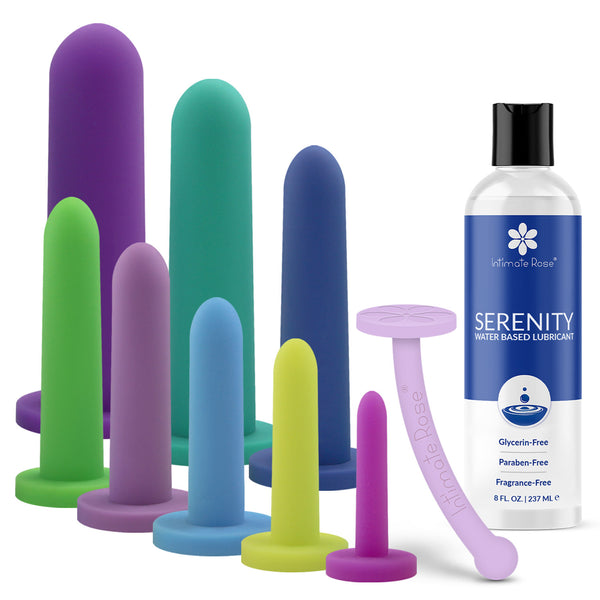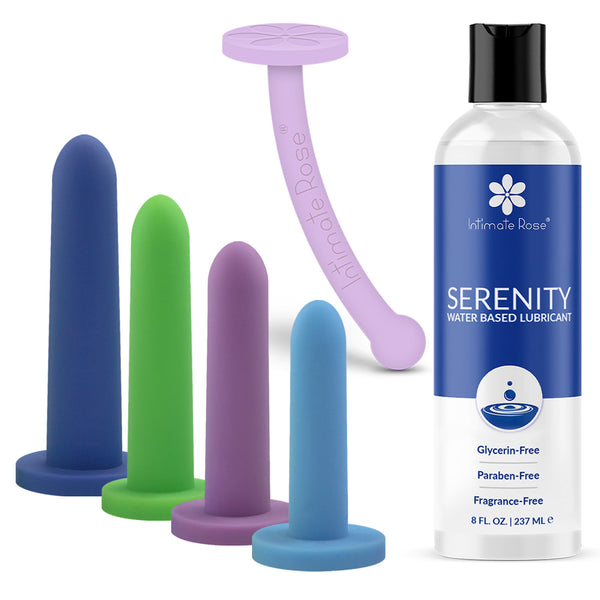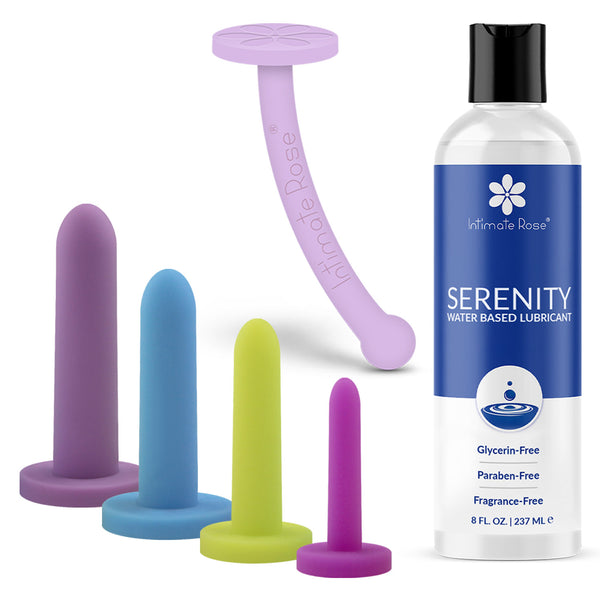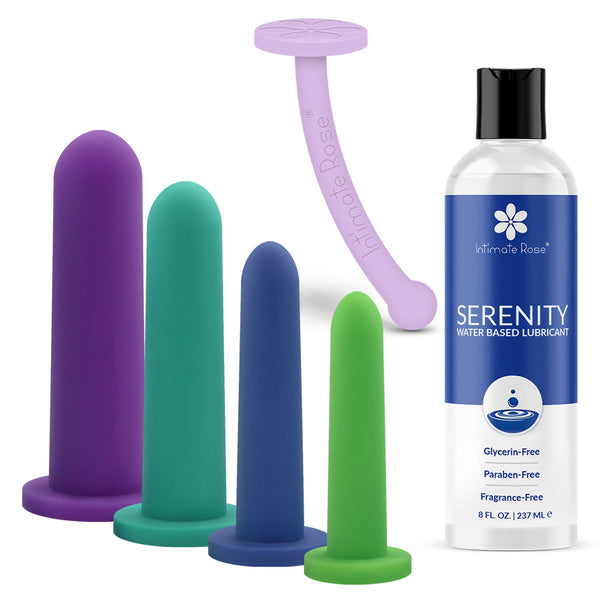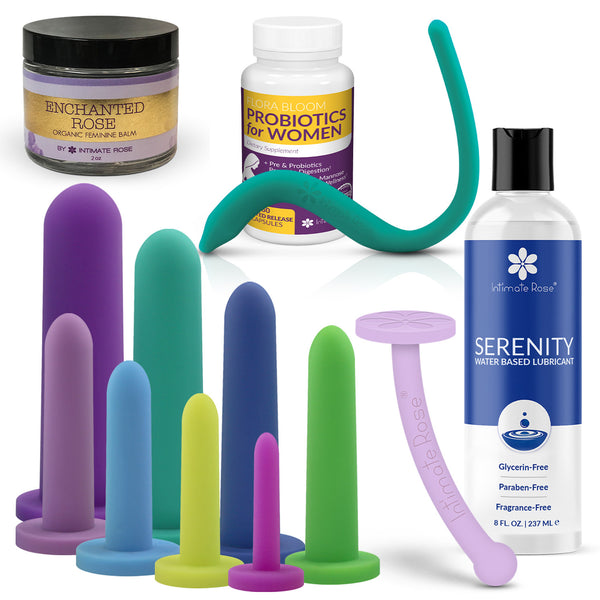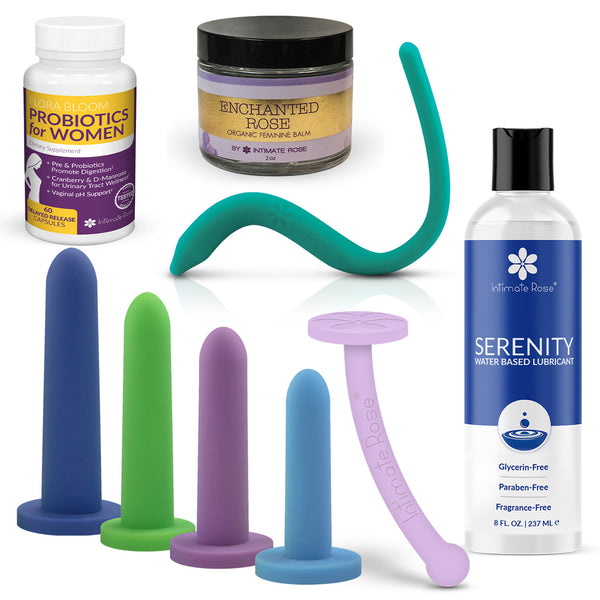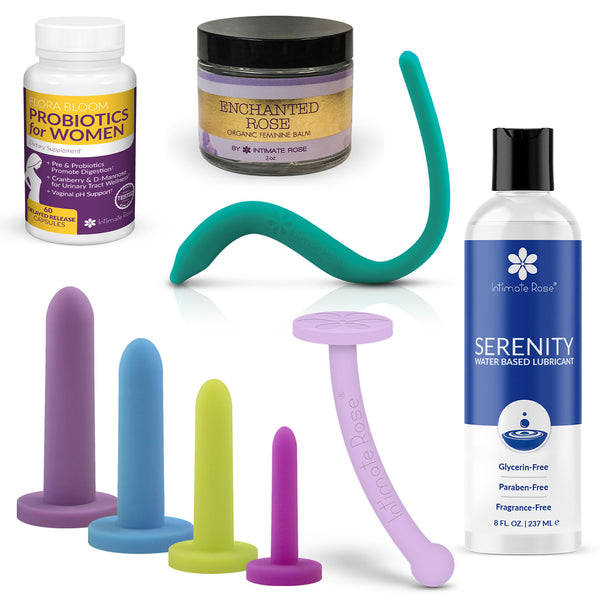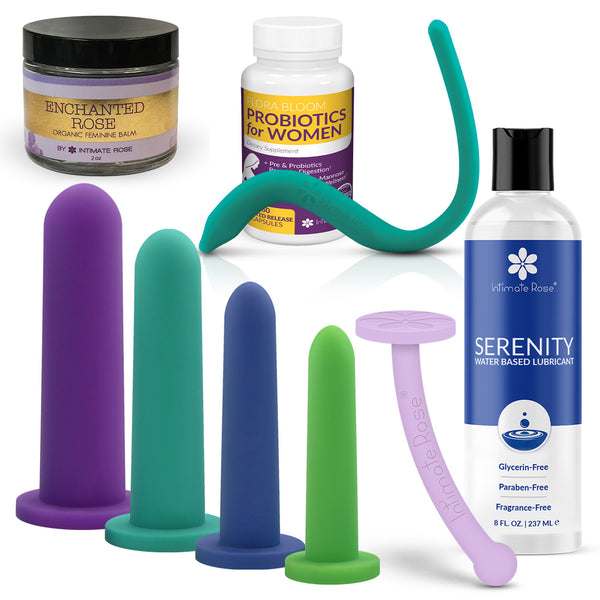According to the CDC, over 600,000 hysterectomies are performed each year in the United States, with an estimated 20 million women having had the operation. If you are scheduled for, considering, or have had a hysterectomy, you likely have a lot of questions.
One of the most common questions we see is, “Will Sex be Painful After My Procedure?”. In this guide, we’ll take you through the ins and outs of what to expect, as well as tips to recover and improve symptoms.
What is a Hysterectomy?
A hysterectomy is a surgical procedure during which the womb (uterus) is removed. The uterus is a hollow organ where a fetus would normally develop and grow during pregnancy.
There are several medical reasons why women undergo hysterectomies, from endometriosis to painful fibroids and even cervical or uterine cancer. Like any surgery, the procedure may result in both short and long-term side effects, including bleeding, scarring, and pain or discomfort (especially during sex).
Sex After Hysterectomy
Although a hysterectomy can have an adverse impact on sex life during the weeks post-procedure, that doesn’t mean it should have a lasting impact on your sexual health and well-being.

Tight? Start here!
Effects of Hysterectomy on Sexual Function
This procedure often results in a shortening of the vaginal canal, sometimes causing the surrounding tissues to feel raw, sensitive or numb. Scar tissue may also form inside the vagina, reducing elasticity and causing vaginal penetration to become uncomfortable or even painful.
Reduced vaginal capacity can lead to the canal feeling tighter (sometimes uncomfortably so), reduce the ability for deep penetration, and causing intercourse to feel painful and unpleasurable.
Dyspareunia
Painful intercourse and inability to achieve penetration are referred to as the medical term dyspareunia. Although the underlying causes of this condition vary, chances are if you’re experiencing this for the first time, it is your hysterectomy that is the cause.
But don’t let this intimidating word scare you. Although painful sex can feel embarrassing, disheartening and shameful, it isn’t your fault, and you’re not alone. Best of all, there are simple and effective treatment options to help. Not only that, research has demonstrated that women without a uterus are fully capable of having and maintaining a healthy sex life after their procedure.
Preparing for Sex Post-Hysterectomy
Perhaps you’ve heard other women discuss how painful sex can be after having a hysterectomy. Although this is certainly the case for some women, it doesn’t have to be for you. By following your doctor’s orders, listening to your body, and giving yourself a little self-care and preparation, you can get back to a healthy and active sex life in no time.
1. Give Yourself Enough Time to Heal
Always listen to your body. Being in-tune with how your body responds to touch and stimulus can ensure you don’t jump back into the saddle (so to speak) too soon. Everyone’s body and healing process is unique. You may take shorter or longer than the ‘average’ time to heal you were told.
2. Always Listen to Your Doctor
Don’t rush things. Take notes at doctor appointments and always follow post-operative care instructions. Your procedure may be less or more invasive than others, requiring special care. On average, the majority of surgeons typically advise patients to wait a minimum of 6-weeks before attempting to insert anything into the vagina (be it sex toys, a penis, fingers or tampons), however many women continue to need to wait until roughly 12 weeks for full healing.
3. Psychologically You May Not Be Ready – that’s OK
Surgery is a major life event. Removal of your uterus is also often a very emotionally charged decision. It can bring up unresolved feelings of shame, uncertainty, guilt, resentment, anger and more. Allow yourself to feel and process on your own time, engaging the help of a mental health professional if needed.
Vaginal Dilators: a Safe and Effective Treatment
These tube-shaped devices, crafted from medical-grade plastic or silicone, look similar to a dildo or vibrator. However, these devices are not used for pleasure, but rather to gently and progressively improve the elasticity and ability of the vaginal canal to comfortably accept penetration.
Sizes range from as thin as a single finger and progressively increase in diameter and/or length as needed.
The Intimate Rose Vaginal Dilators are cleared to treat the symptoms of Vaginismus such as painful intercourse, known as dyspareunia.
How does a vaginal dilator work?

Benefits of Vaginal Dilator Therapy
Vaginal Dilators work by gently and reliably improving the elasticity of the vaginal tissues, causing ligaments and muscles to relax, increasing blood flow, calming nerves.
Benefits Include:
- Preventing the vaginal canal from narrowing
- Train the pelvic floor to make pelvic exams more tolerable
- Reduce discomfort and pain associated with sexual activities
- Reduce pain and discomfort when using tampons
Why Women Use Vaginal Dilators
- Vulvar Vestibulitis (painful intercourse)
- Vulvodynia (chronic vulva pain)
- Dyspareunia (painful sex)
- Vaginismus (vaginal muscle spasms)
- Vagina stenosis (loss of vaginal elasticity and flexibility)
- Post radiation therapy
- After chemotherapy
- After hysterectomy
Take Back Control of Your Sexual Health and Well-being
Don’t let a hysterectomy permanently deprive you of a healthy sex life. Once healed it is not uncommon to continue to experience difficulty with penetration or pain associated with vaginal stimulation.
If you find yourself having difficulty in this area of your life, consider speaking to your health professional about vaginal dilator therapy or reaching out to Intimate Rose for assistance getting you the help you need.

Tight? Start here!




